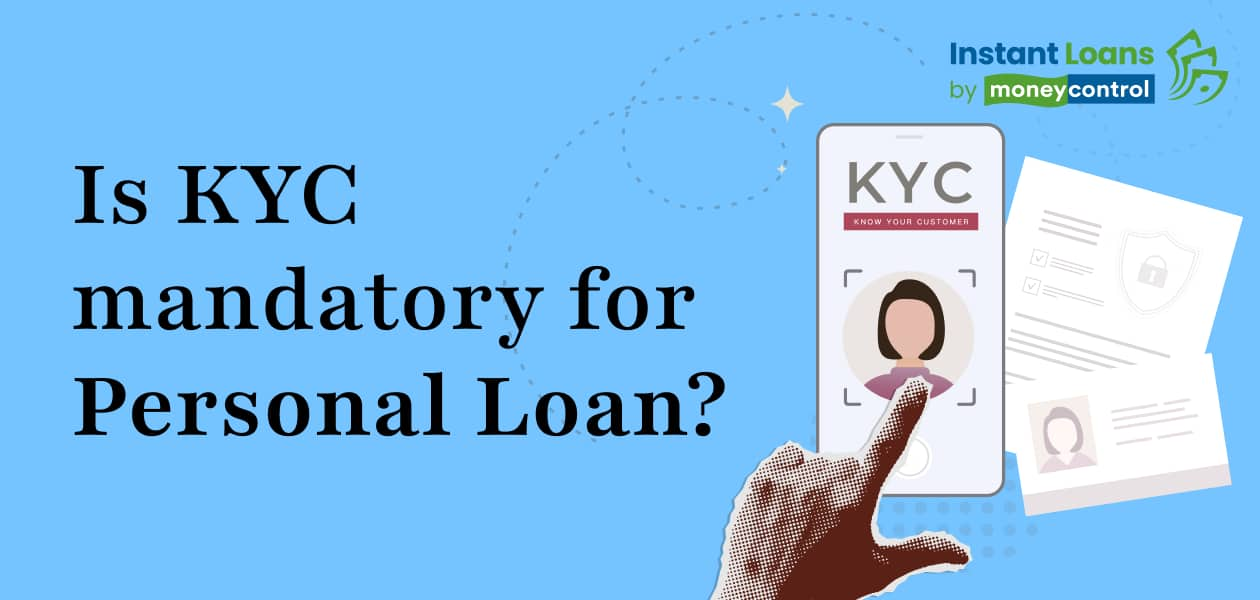A personal loan is an unsecured loan that individuals can use for various financial needs, such as medical emergencies, home renovations, or education. Since it doesn’t require collateral, lenders assess the borrower's creditworthiness, income stability, and repayment capacity before approval. The loan approval process also includes mandatory Know Your Customer (KYC) verification to confirm the borrower's identity.
What is KYC? Know Your Customer (KYC) is a verification process used by banks and financial institutions to confirm a customer's identity and address. It ensures that lending is secure, transparent and compliant with regulations. To complete KYC, borrowers must provide documents like ID proof and address proof.

This process helps prevent identity theft, fraud and money laundering while ensuring financial security. Is KYC mandatory for personal loans? Yes, KYC is a mandatory requirement for personal loans to minimise the risk of fraud. When borrowers complete KYC, lenders have access to their personal details, including identity, address, bank information and mobile number, making fraudulent activities less likely.
Verifying an applicant's identity through KYC helps lenders confirm their authenticity, preventing identity theft and fraudulent loan applications. KYC also allows lenders to assess the applicant's credit history and financial behaviour. Banks and NBFCs use KYC details to evaluate a borrower's repayment capacity.
If a borrower defaults, lenders can track and contact them using their verified identity. In cases of fraud, cybercrime, or financial disputes, KYC records help financial institutions and law enforcement identify and track responsible individuals. Failing to complete KYC leads to loan application rejection, while incomplete document submission delays approval.
Applicants must submit genuine KYC documents, as providing fake or incorrect information can result in legal action. Moneycontrol has partnered with eight lenders to offer 100% paperless personal loans up to Rs 50 lakhs . The application process is easy to follow: enter your details, complete the KYC verification, and choose an EMI plan.
Interest rates can start as low as 10.5% per year. Documents required for KYC As digital banking has advanced, many lenders now provide electronic KYC (eKYC) for quicker and easier verification.
This process is typically done using Aadhaar authentication. Borrowers enter their Aadhaar number if applying online. The system then verifies the details instantly through UIDAI and if found authentic, the loan is immediately approved.
Other than this, some financial institutions prefer offline KYC. In this process, the borrower has to submit identity proof, address proof and income proof. Here are the documents needed for KYC process: How to complete KYC for personal loans? There are two ways through which KYC is completed, either online or offline.
Online KYC for personal loans Offline KYC for personal loans For loans via Moneycontrol, there are multiple methods for KYC verification: a) Through Digilocker b) Aadhaar-Based OTP Verification Get Instant Loan Up To Rs.50L KYC ensures a secure and transparent loan process by verifying a borrower’s identity and financial history. Lenders use it to prevent fraud, identity theft and loan defaults while ensuring regulatory compliance.
Completing KYC speeds up loan approvals and helps borrowers build trust with financial institutions. Without proper verification, lenders may reject or delay loan applications. Moneycontrol has partnered with seven lenders to offer fast, fully digital loans of up to Rs 50 lakhs .
The process entails entering your details, completing KYC verification, and selecting an EMI plan. Interest rates start as low as 10.5% per year, depending on employment status.
.















